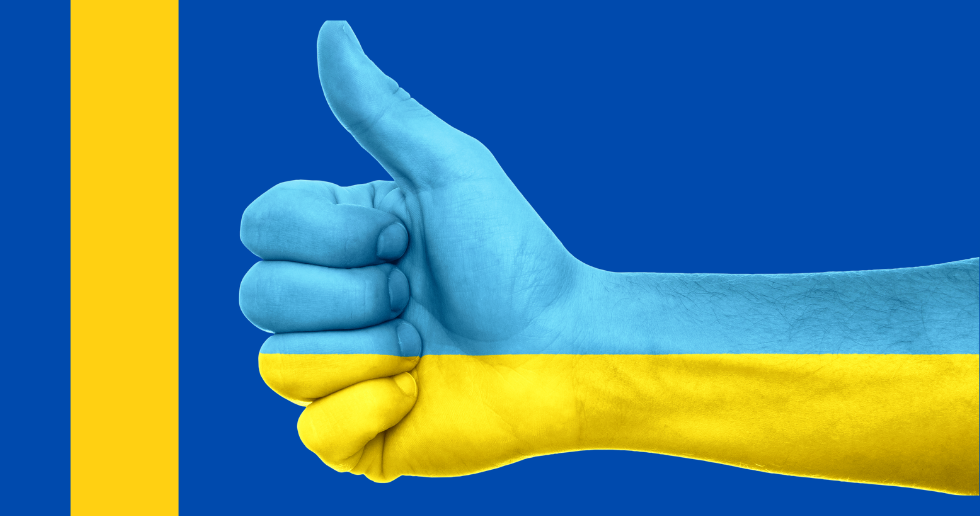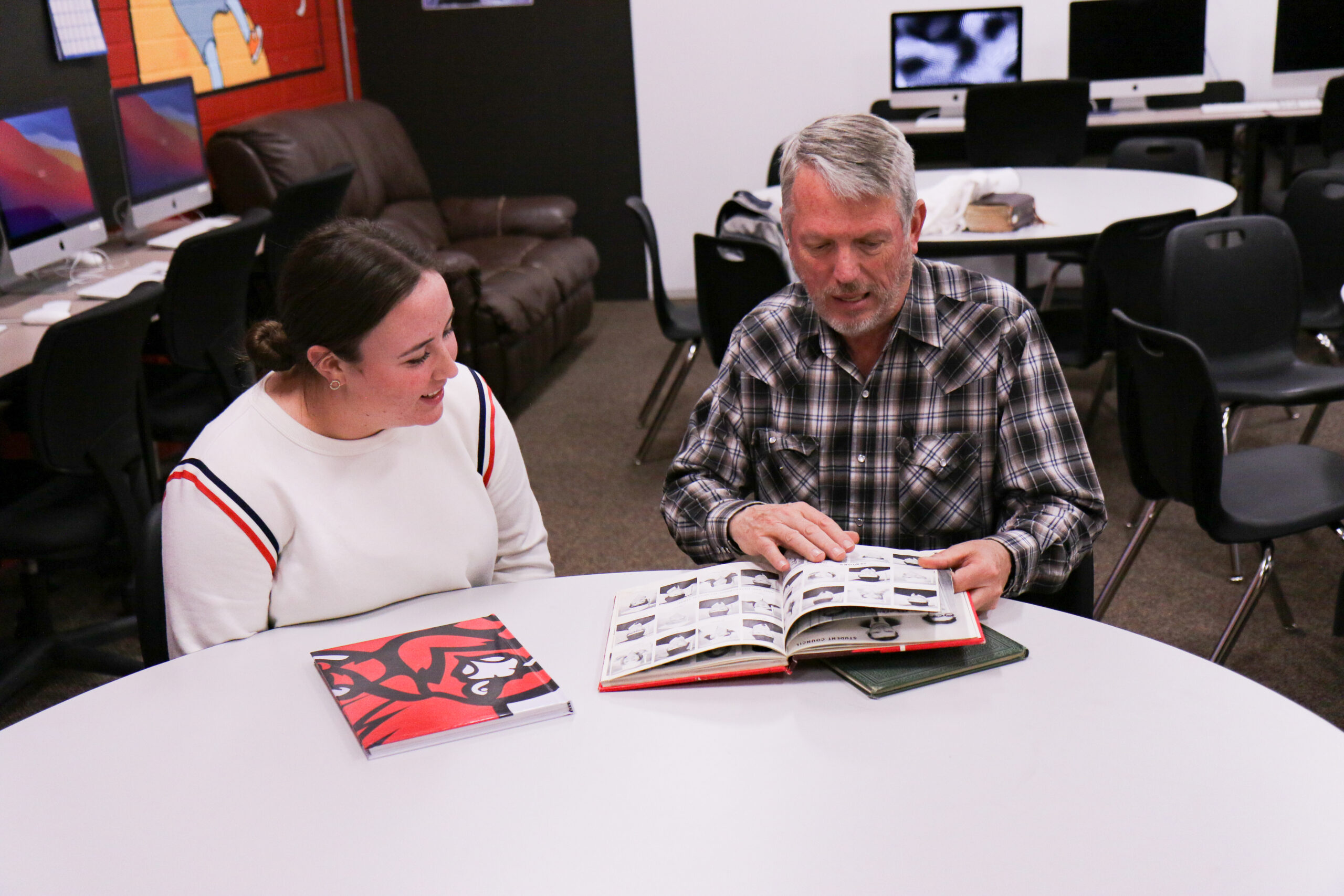by Mary Jones
Business Editor
In the past few weeks, the news has been full of updates on Russia’s invasion of Ukraine. Russia’s attack has brought international interest due to its being carried out against international law.
Russia’s invasion of Ukraine has caused alarm and concern across the world, and has affected us economically due to price increases as well. However, for freshman Shea Rawlinson, her older sister’s recent service in Ukraine as a missionary has brought her family a personal connection to the conflict.
“It’s been a few years, but she still had those really close connections since she’s come back, like over Instagram,” Rawlinson said. “She was in Kyiv where like they bombed everything, so it’s weird; one night, she just came up to me—she’s like ‘Watch this video,’ and it was a video of like a street and a building getting bombed, and she said that she walked by that every day.”
According to Rawlinson, many of the people in contact with her sister are, like many other Ukrainians, either in the process of fleeing to other European countries or are in bomb shelters inside of Ukraine. In hopes of helping those affected by the invasion, Rawlinson’s family has found ways to donate to Ukraine, which to her is very important.
“Honestly, just think about them; that’s it,” Rawlinson said. “If you can donate anything, do it, but right now, they need our help. If it was your friend who needs help in that moment, you would help them.”
While the Soviet Union existed, Ukraine and several other countries were considered a part of Russia. As the Soviet Union dissolved, many of these countries became independent nations. However, since 2014, Russia has been making large attempts to regain possession of Ukraine.
“Ukraine is an independent Democratic country,” said NS government teacher Emily Revoir. “Since [the Soviet Union] fell apart… all these Eastern European countries kind of broke apart, Ukraine has been independent since then, and so earlier, a couple weeks ago … when Vladimir Putin and his armies invaded Ukraine, they were doing so against international law because Ukraine is an actual independent country.”
In response to Russia’s invasion of Ukraine, several countries, including the United States, have enacted severe sanctions against Russia and its oligarchs to create economic pressure for Russian leaders and citizens. Though this economic pressure is meant to affect Russia primarily, the United States, due to the decision to no longer purchase Russian oil, is seeing the rise of gas prices, and according to Revoir, will see the cost of the military aid being sent to help defend Ukraine.
“We do trade with Russia, we get oil from Russia, you know gas prices were going up before this, but this has just made it worse,” Revoir said. “The Ukrainian President has been asking the United States for more help… and the President has authorized like so much more money even in just the last couple of days that they are going to send to Ukraine… as citizens, we’re paying for that through our taxes, so it’s going to Ukraine, but I don’t think that people mind; I think that most people are fine with it to help Ukraine.”
Though a conflict like the one unfolding in Ukraine is new for this generation, it isn’t new for our country or the world.
“What’s going on now certainly isn’t new, it’s happened before,” said NS history teacher Tyler Bailey. “America and other countries have dealt with dictators trying to take smaller countries over before, and in the past, it’s [led to] the United States getting involved and people having to make sacrifices for, like, the global good. My hope is that if that is what is needed, that Americans today will do what Americans have always done and… sacrifice a few things maybe for the global good.”
Conflicts like this aren’t new; in the past, world leaders have invaded and taken countries that they believed should be theirs and, according to Bailey, at least in terms of taking land, Putin’s course of action now is similar to that of Hitler’s at the start of WWII.
“It’s extremely similar; you have two guys that grew up in their respective countries that they were leading, and their countries lost land… and they want to restore the old country,” Bailey said. “Hitler wanted to make Germany great again, and Putin in his mind I think was thinking he wants to make Russia great again. They’re looking to kind of do the same thing, kind of recreate the old country.”
Although similar to past conflicts in objectives or effects, social media has brought information and coverage of the war worldwide, unlike in the past. Modern media, news, and minute-by-minute coverage from Ukraine is available as the conflict escalates, possibly bringing more attention, understanding, and compassion.
“Social media has changed everything,” Bailey said. “Not only do you have… 24/7 news cycles, but then you have people also on the ground who are filming things and putting it to their Instagram and their Twitter accounts… and so more people around the world are seeing kind of firsthand what’s happening as it’s happening. I think you could say yeah, people might be more compassionate now just because they truly understand what is happening, whereas back then, news didn’t travel as fast.”
Although social media has been a large part of the war in Ukraine, according to news organizations like the New York Times and France24, watching the war unfold, though possibly making people more empathetic, can have negative effects on the mental health of viewers.
Though the invasion has been horrific for those in and outside of Ukraine, according to Revoir, it seems that there are things that can be learned from it.
“Most of the world supports Ukraine,” Revoir said. “In congress, we see so often that they never get along. Democrats and Republicans never get along; they can’t agree on anything, but for the most part, they agree on Ukraine. So, I think we should use it as a lesson that we can actually agree on things, and maybe we can work together better than we do most of the time because if we can, you know, get behind a cause it can be like that with any cause. No matter what you’re trying to pass, there is common ground there somewhere if you’re willing to look for it.”




